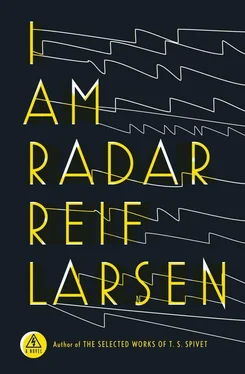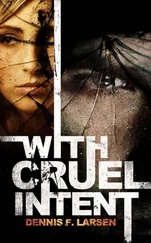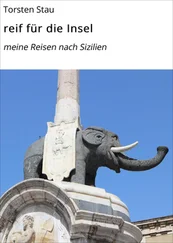She rediscovered her books. She read and reread A Tale of Two Cities and then devoured Anna Karenina three times through. The words suddenly all felt new, as if they had been freshly planted on the page. She developed a pathological kinship for Anna’s character. Charlene was not deterred by her limited selection; rather, the repeated rhythms of the narratives beat back the wet terror festering inside her chest.
When she was well enough to leave the apartment, she made two decisions: (1) She would find a job, a real job, and (2) she would go clean. Her fortitude on item number 2 felt shaky, so she wrote her intentions for sobriety down onto a piece of monogrammed stationery that her parents had given her the previous Christmas. She initialed the page and then hid it beneath the floorboards of her room.
In fact, it was her fortitude on item number 1 that proved the problem. She was not good at finding a job. There was something liberating about being completely broke in New York. Or maybe she was just lazy. She began spending all of her waking hours at the Strand, reading entire novels as she stood next to the towering rows of shelving. What a strange population haunted those aisles: maharajas and heart surgeons, shell-shocked vets and Shakespeare scholars, hunchbacked pensioners and schizoid hoboes. Lured by literature or the promise of literature, they came and they usually stayed, and some of them slept and a few of them peed. She read the rest of Tolstoy, then Dostoyevsky, then Dickens, and when she tired of Dickens she turned to Woolf and then Melville. She read the Iliad . She read the new Vonnegut. She read The Crying of Lot 49 and afterwards was so overcome with what we are able to accomplish with the simple constellation of words that she walked right out of the store in a daze, forgetting that she was holding the book in her hands.
A hand grabbed her shoulder. She turned to find a cute, bespectacled young man doing his best impression of an angry manager. He demanded the book back, threatening some kind of intense police intervention. Realizing her folly, Charlene began to apologize profusely, though she also couldn’t help but be amused by this man’s clear dislocation from the outside world. He was a fish out of water; he belonged back among the books. Relieved, the man quickly dropped his austere routine, and soon they were both absorbed in a cyclical conversation about Pynchon, right there on the sidewalk amid the December rush of shoppers. The bookstore and the city and everything else fell away, and the universe contained only him and her and the delightful possibility of the Trystero all around them. She was not sure how much time had passed, but she surprised herself by asking him for a job. She was good, she said. She knew what the books needed.
The man’s name was Petar — it was spelled with an a, as she would later come to learn. Needless to say, she was hired. Needless to say, she also began sleeping with Petar. He was kind and gentle and terribly nerdy. Together they got matching tattoos of the Trystero post horn on their ankles. The relationship lasted just long enough to make her believe that she was capable of caring again.
The job itself was a revelation. She loved haunting the bookstore after hours, glimpsing the occasional spine of an old library copy, its Dewey Decimal numbers protected by a crumbling layer of Scotch tape. She began to memorize the index of Dewey Decimal subjects, pairing those numerals with its far-flung content:
813: American fiction
883: Classical Greek epic poetry and fiction
646.7: Personal grooming
179.7: Euthanasia
621.38416: Radio operations (ham)
The system was a salve against the chaos of life, and the disparate glimpses of its calculus made her miss the rigorous order of a true library, where each volume was slotted into place like a giant stopwatch of human knowledge. She realized she had been avoiding her calling. Books, the cataloging of books, that pursuit without end, was the only way to quell the panic.
She applied and was accepted into the master’s program in library science at Syracuse. The year was 1969. Back in her parents’ good graces, she borrowed their nearly expired woody, packed up everything she owned, which was not all that much, bade the melancholic twins, Bee, Petar, and the great city adieu, and headed north.
It was a tough time to be a librarian. It was never easy to be a keeper of books, but it was particularly tough during that turnover winter of ’69, a hinge point when the world rubbed its eyes and realized all was not as it seemed. Students were too busy protesting and talking about protesting to really read anything of substance, and libraries shifted from being quiet places of study to social justice performance spaces and raucous backdrops for self-important sit-ins. The books, poor things, suffered the brunt of this indignity. Various wet concoctions were thrown around in the stacks that should not have been thrown around in the stacks. The books were used as props, shelter, weapons. Precious manuscripts, seen as relics of the establishment, were soiled with palimpsestic hippie poetry and bodily fluids. Students stole everything by Nietzsche and Marx. The entire section on Zen Buddhism (294.3927) disappeared overnight. Charlene found herself shooing away half-naked couples smoking grass and/or fornicating in the stacks on a daily basis. Heavy times. Groovy times. Just not for a librarian. Charlene might’ve cared more about the whole movement if she hadn’t found it all so completely juvenile. She felt like an older sister watching her younger siblings tear apart the house while their parents were away.
There was a professor in her department, H. H., whom she greatly admired. He excelled at that high-wire act — unique to the professorial métier — of appearing both desperately out of fashion and yet also far ahead of his time. A wearer of herringbone tweeds, H. H. had a thick mass of brown hair that, despite vigorous morning placations with a comb, always seemed to untangle gravity’s spell by lunchtime. He was a true scientist of books, the only person she had met whom she could definitively call a genius. H. H. was working with a library in Ohio to develop a computerized system that would eventually replace the card catalog. He and Charlene got into endless arguments about this — she defending the sanctity of the cards and he dismissing them as already outdated, an anchor weighing down civilization’s eternal march forward.
“Paper will soon be a thing of the past,” he said. “It probably already is.”
“And so what of the library? Should we just burn down all of our cultural cathedrals?”
“The library is not a cultural cathedral. It is an outdated warehouse.” He put a hand on her shoulder. “Progress, my dear. It’s the only truth in life. There are some things that you just cannot fight, though I must admit, I find it quite charming when you do.”
When Houston Revere, a drawl-edged southerner in her program, asked her if she was sleeping with H. H. yet, she responded with a surprisingly venomous denial.
He held up his hands defensively. “I’ll take that as a yes,” he said.
On the one hand, it would’ve been so easy to slide down such a path. Her time in the city had left her with a sexual aptitude that she was not necessarily proud of. She knew that men found her particular mixture of melancholy and candor alluring, but every time she thought of H. H.’s hands upon her (and she would admit, she had thought of those hands, of running her own hands through that pritchkemp mane), she was filled with a sense of terror, of falling backwards into a lake with no bottom. This was familiar territory that she had sworn off for the abstinence of the bibliography. She did not want to turn back. His lingering gaze, despite the heat it elicited in her chest, felt like a force prying her fingers off the tiller.
Читать дальше












